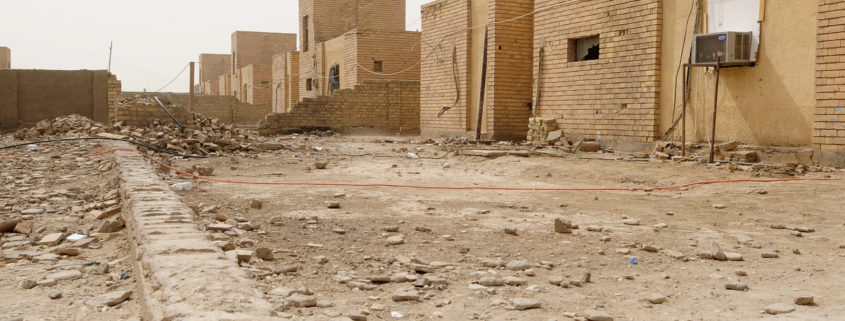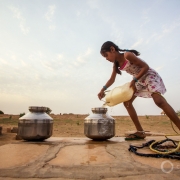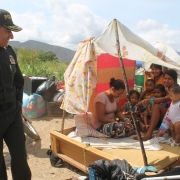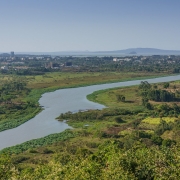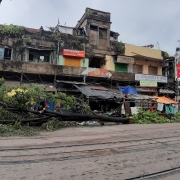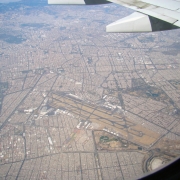HotSpots H2O, December 19: Water Shortages Plague Iraq after Years of War
The Global Rundown
India and Pakistan race to build hydropower plants along the Neelum River. A China-India water dispute endangers villagers living in the Brahmaputra River’s floodplain. Refugees from the Central African Republic harness river water to develop fish ponds. Years of fighting leave Iraq’s dams and other infrastructure damaged, contributing to the country’s growing water scarcity. After decades of uncertainty, a dispute over the water rights of Arizona’s Hualapai Tribe may soon be resolved.
“Imagine what could happen now that we will not be receiving any information from China. None of our villages will be safe.” –Sanjiv Doley, a resident of Dhansirimukh village, in reference to China withholding river data from downstream India. Indian villages along the banks of the Brahmaputra River typically rely on the data to provide early flood warnings, but the Chinese government failed to provide the critical information during this year’s monsoon season. It is unclear if the data-sharing will resume. BBC
Latest WaterNews from Circle of Blue
EPA Delays Lead and Copper Rule Again, Promises ‘War on Lead’– Draft proposal now expected in August 2018, a seven-month delay.
UN Expert Connects U.S. Water and Sanitation Struggles to Poverty – Two-week visit includes examination of sewage failures in Alabama.
By The Numbers
40 percent Decline in the amount of water flowing in key Iraqi rivers over the past several decades. Changing rainfall patterns, new dams in neighboring countries, and damage to dams and other war-torn infrastructure are responsible for the drop in supply. Thomas Reuters Foundation
$170 million Cost of a pipeline to divert water from the Colorado River to the Hualapai Tribe in northern Arizona. A dispute over the tribe’s water rights has simmered for several decades, and the pipeline was suggested as a solution in 2016. Arizona lawmakers recently introduced legislation to ratify the potential pipeline. Arizona Public Media
Science, Studies, And Reports
In eastern Cameroon, the World Food Program has begun pairing groups of Central African Republic refugees with local volunteers, who help the refugees harness river water to create fish ponds. The refugees then harvest and sell the fish, gaining food and an income in the process. Relief Web
On The Radar
For years, India and Pakistan have been racing to generate power from the Neelum River. Both countries will soon complete the construction of their own hydroelectric power plants, raising concerns about upsets in water supply. Times of India
Kayla Ritter is a recent graduate of Michigan State University, where she studied International Relations and Teaching English to Speakers of Other Languages. She is currently based in Manton, Michigan. Kayla enjoys running, writing, and traveling. Contact Kayla Ritter

